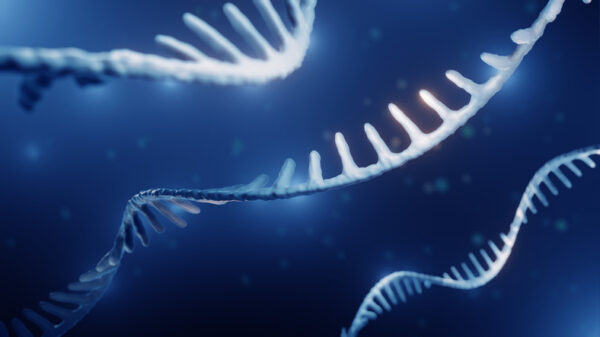
An Ionis Pharmaceuticals drug has preliminary data showing it met the main goal of its pivotal test in a rare disease with only a handful of approved treatments. With these results in hand, Ionis is now preparing to submit its drug candidate for FDA review. However, the key data that will determine how competitive the drug could be won’t become available until later this year.
The Ionis drug, donidalorsen, is in development for hereditary angioedema (HAE), an inherited disease that leads to swelling attacks throughout the body. When these attacks close off the airway, they can become life threatening. Ionis reported Monday that its subcutaneously injected drug met the main trial goal of reducing the rate of angioedema attacks, dosed every four weeks or every eight weeks, compared to a placebo. The drug was well tolerated by patients and no serious adverse events were reported in the treatment group, according to the Carlsbad, California-based company.
Ionis did not provide additional details about donidalorsen’s safety or the reduction in HAE attacks, but said it plans to present the Phase 3 results at an upcoming medical meeting this year. In Phase 2 testing, the average reduction in HAE attacks compared to a placebo was 90% in weeks one to 17. Furthermore, the Phase 2 results showed 92% of treated patients were attack free versus 0% in the placebo arm from weeks five to 17.
“We are very pleased with the positive topline results from the Phase 3 OASIS-HAE study of donidalorsen,” Kenneth Newman, senior vice president, head of clinical development at Ionis, said in a prepared statement. “Based on these results and the durable efficacy and favorable safety data seen in the ongoing Phase 2 open-label extension study, we believe donidalorsen, if approved, could be an attractive new treatment option for patients with HAE, many of whom continue to experience unpredictable, painful and severe breakthrough attacks despite currently available prophylactic treatments.”
Ionis’s drugs are based on antisense oligonucleotides, small pieces of DNA or RNA that bind to messenger RNA to stop the production of a disease-causing protein. Donidalorsen is designed to target the mRNA responsible for producing a protein called prekallikrein, a precursor to the kallikrein protein that contributes to HAE attacks.
If Ionis can bring its HAE drug to the market, it would compete against Takeda Pharmaceutical’s Kalbitor, an injectable kallikrein inhibitor. Another Takeda HAE drug, Firazyr, blocks a different protein called bradykinin. BioCryst Pharmaceuticals has commercialized an oral kallikrein inhibitor branded as Orladeyo. CSL Behring markets two C1 esterase inhibitors, Berinert and Haegarda. Pharming Group’s Ruconest is also a C1 esterase inhibitor. KalVista Pharmaceuticals has reached Phase 3 testing with sebetralstat, an oral kallikrein inhibitor developed as an on-demand treatment for HAE attacks. KalVista expects to report preliminary Phase 3 data early this year.
Ionis said the scientific meeting presentation of donidalorsen’s Phase 3 data will happen by mid-2024. That’s also the time frame for reporting results from the open-label extension of the Phase 3 test and the separate group of patients who have transitioned to the Ionis drug from another prophylactic. These are the key data that will determine how the Ionis drug could match up against the competition. In a note sent to investors Monday, Leerink Partners analyst Mani Foroohar wrote that these results will clarify whether donidalorsen’s commercial profile supports broad switching from other drugs or if it will be driven mainly by newly diagnosed patients.
Ionis plans to handle U.S. commercialization of donidalorsen if it’s approved. European commercialization is in the hands of Otsuka Pharmaceutical. In December, Ionis struck a deal granting Otsuka those rights in exchange for a $65 million upfront payment. The deal makes Otuska responsible for European regulatory submissions. The Japanese drugmaker would owe Ionis milestone payments and royalties from sales of the drug in Europe.
Image by Getty Images










